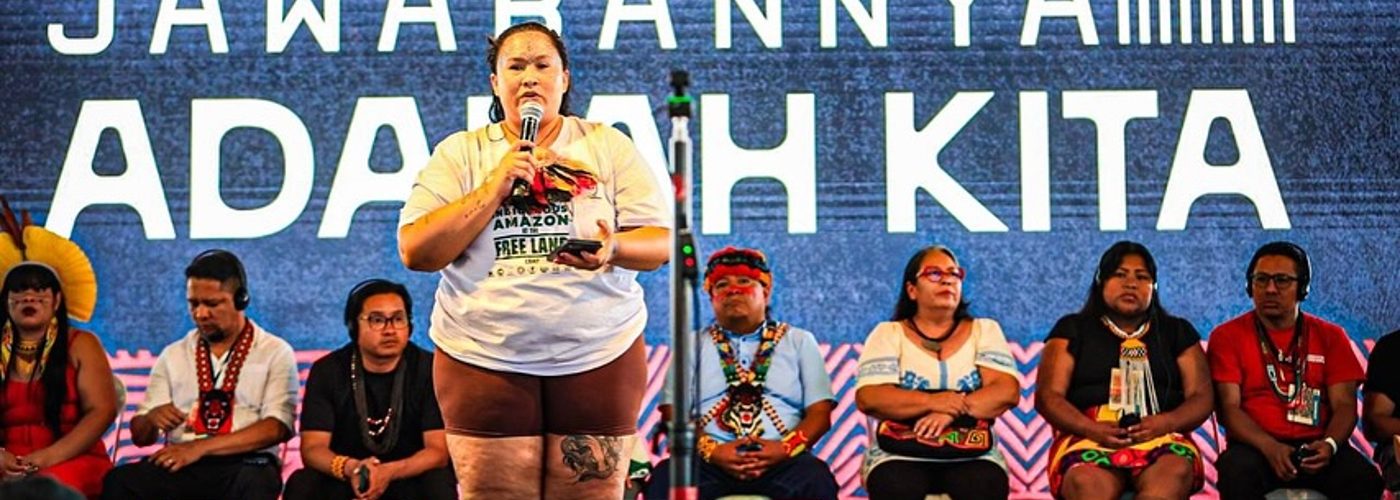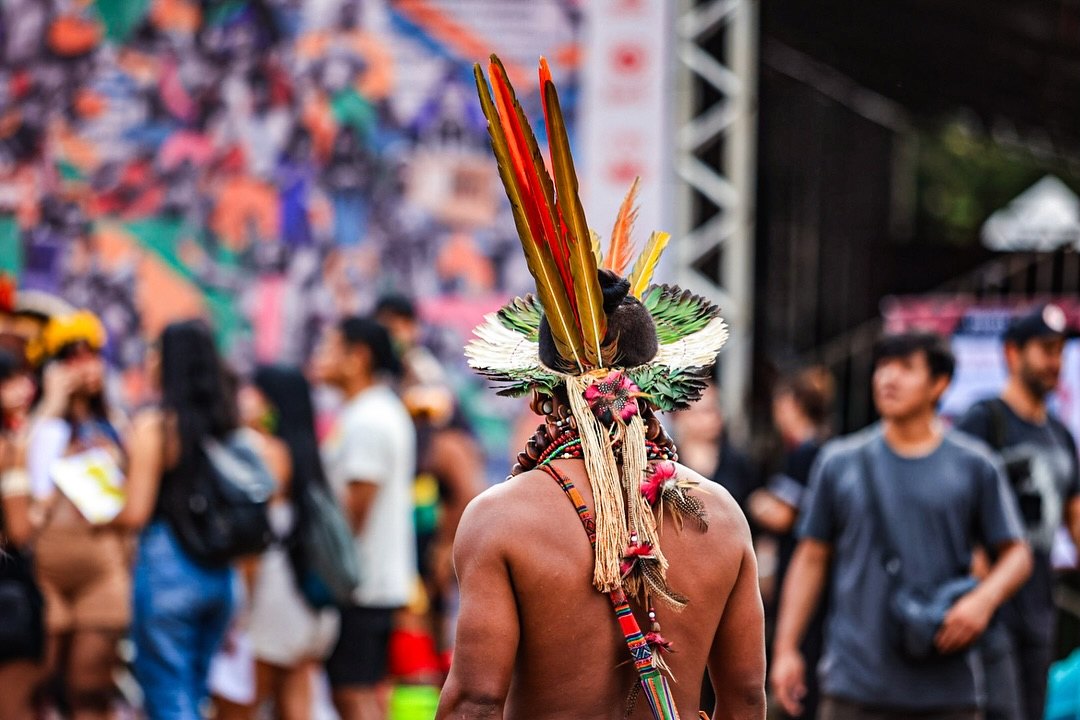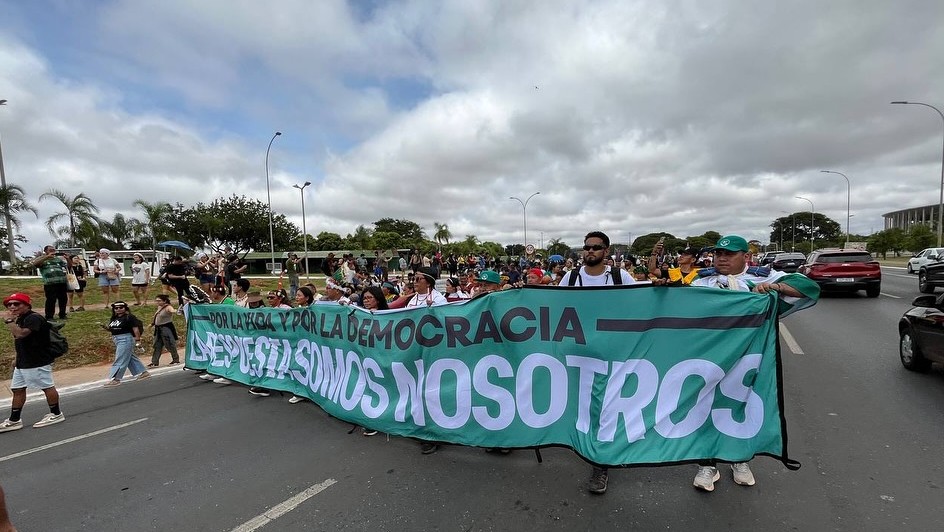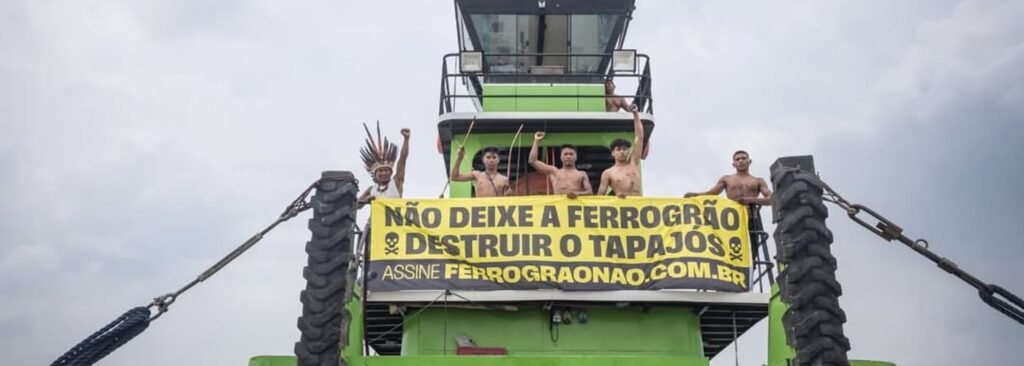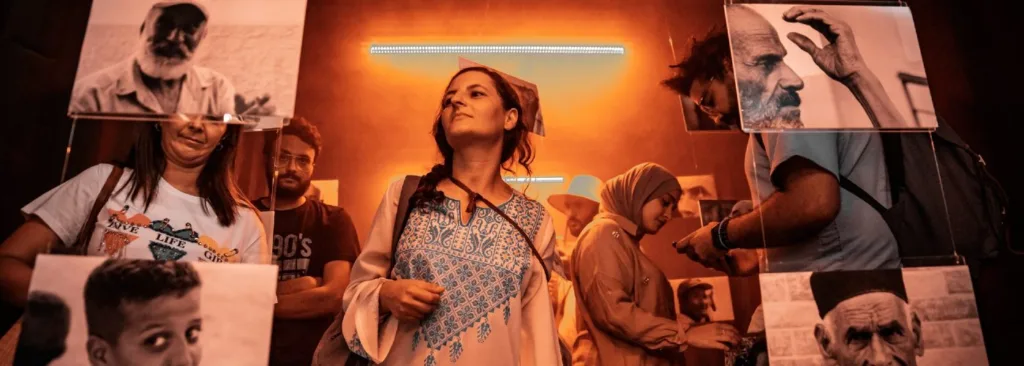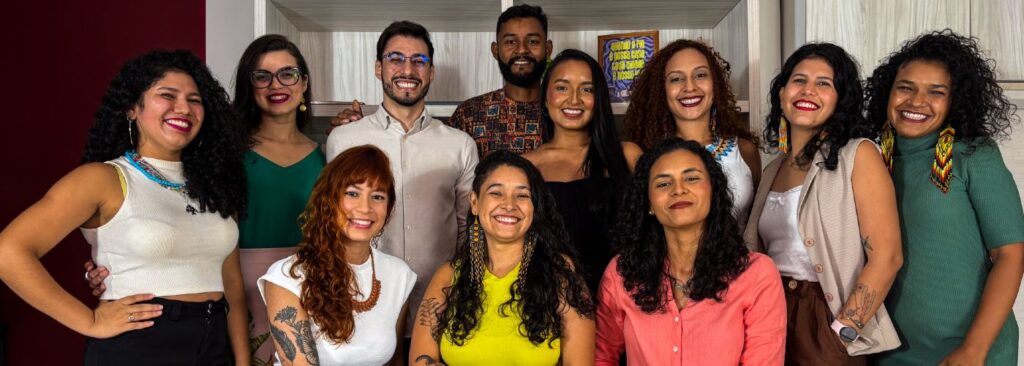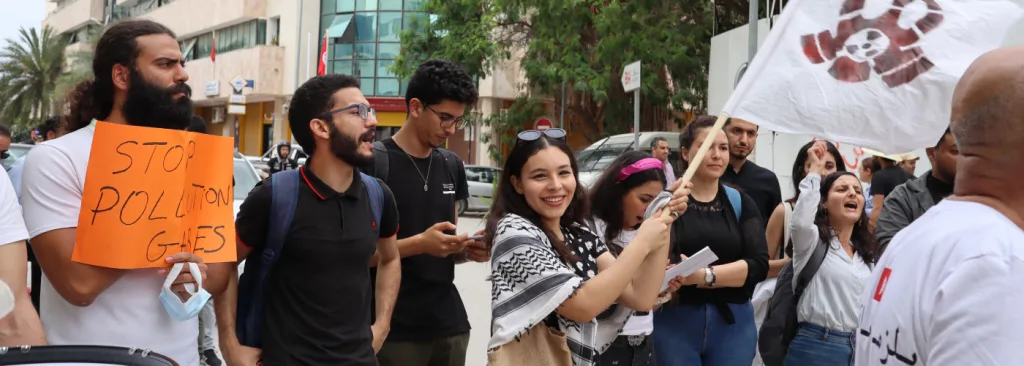This April saw the 21st edition of the largest gathering of Indigenous People in Brazil – and in the world. Called the Free Land Camp, or Acampamento Terra Livre (ATL), this year it aimed to strengthen Indigenous bonds worldwide by bringing together global leaders to improve Indigenous advocacy and protect the planet.
By Jaël Poelen & Jakeline Xavier
Since it was announced that Belém in the Brazilian Amazon would host COP30 this November, Brazil’s Indigenous movement has been laser-focused on ensuring it will be a milestone for climate policy. So this year’s ATL took on a distinctly international character, inviting Indigenous leaders from both Brazil and all over the world to come and discuss their initiatives for COP30.
We spoke to Marciely Tupari, secretary coordinator of the Joint Coordination of Indigenous Organizations of the Brazilian Amazon (COIAB). COIAB is pivotal for Indigenous mobilization in Brazil and has been a partner of Hivos’ Voices for Just Climate Action program since 2021. “The 2025 Free Land Camp (ATL) reaffirmed the power of Indigenous diplomacy, bringing together peoples from the nine Amazon Basin countries, Australia, the Pacific Islands, and Canada. This didn’t start just now – it’s the continuation of centuries of resistance and solidarity between peoples who, although far apart, share the same struggle,” she said.
Marciely – a young Indigenous leader – added that ATL has strengthened their collective voice by launching an International Indigenous Commission to be part of COP30 and supporting the “We Are the Answer” campaign. “It was a space for reaffirmation: while states are slow to act, we Indigenous peoples have been practicing true climate justice for generations – protecting the territories that sustain the planet,” she said.
International mobilization
As one of the Indigenous hosts of COP30, COIAB led the pre-COP30 debates during the ATL. Also present were the G9 Indigenous Amazon, a union of Indigenous leaders from the nine Amazon Basin countries, and Troika Indígena, a union of Indigenous peoples from Brazil, Australia, and the Pacific Islands.
The two Indigenous coalitions declared in a statement: “From now on, we will be united, declaring to the world that, if it’s up to us, COP30 in the Amazon will be the symbol of a decisive turning point in climate negotiations and mobilizations.”
Fighting the exploitation of the rainforest
Leaders of the G9 also discussed the ongoing struggles and political challenges they face in each Amazonian country. Majo Andrade Cerda, from the Confederation of Indigenous Nationalities of the Ecuadorian Amazon (Confeniae), recalled the 2019 national protests in Ecuador against oil exploration in the Yasuní National Park, which left at least ten dead and several injured. “We realized that the policy could be reformed if it was approached from the perspective of Indigenous peoples, women and youth. The whole of Ecuador said ‘no’ and we left the oil underground,” she said.
“When our comrades died, we understood that Indigenous peoples shouldn’t be on the frontlines just to die for our rights. We can exercise different forms of politics to reform the country that is so against us. The fact that we are Indigenous already makes us political beings. That’s why every action we take must have a political perspective of what we want to do to save the [Amazon] territory,” she added.
Brazil’s contradictory stances
Luene Karipuna is a prominent Brazilian Indigenous leader fighting against fossil fuel extraction in the Amazon. Speaking at COIAB’s meeting on this threat, she warned about new auctions of land to explore for oil and gas and pointed out the contradictory actions of the Brazilian government. At COP28, Brazil stated it was necessary to end its exploitation of fossil fuels. But just a few hours earlier, it had joined the OPEC (Organization of Petroleum Exporting Countries) cooperation charter.
Lately, despite his image as a climate leader, Brazil’s President Lula da Silva has been defending oil and gas exploration in the Amazon, arguing that the revenue generated will fund the country’s transition to clean energy. “It’s contradictory to use this discourse in Brazil,” declared Luene. “What about us? Where is our right to life? Where is our right to deny this project, which is already having a social impact on our territory? The Brazilian government is not having a technical debate about this project, nor is it taking into account the traditional knowledge of the region’s peoples,” she emphasized.
Towards COP30
ATL’s closing plenary session, The Answer is Us: Towards COP30, launched the International Indigenous Commission for COP30. The new group is part of a Leadership Circle created by the COP30 presidency – The People’s Circle – that includes the largest representative bodies of Indigenous peoples. The Commission will be made up of 16 members who are yet to be defined, but at least two will be from Brazilian Indigenous organizations.

